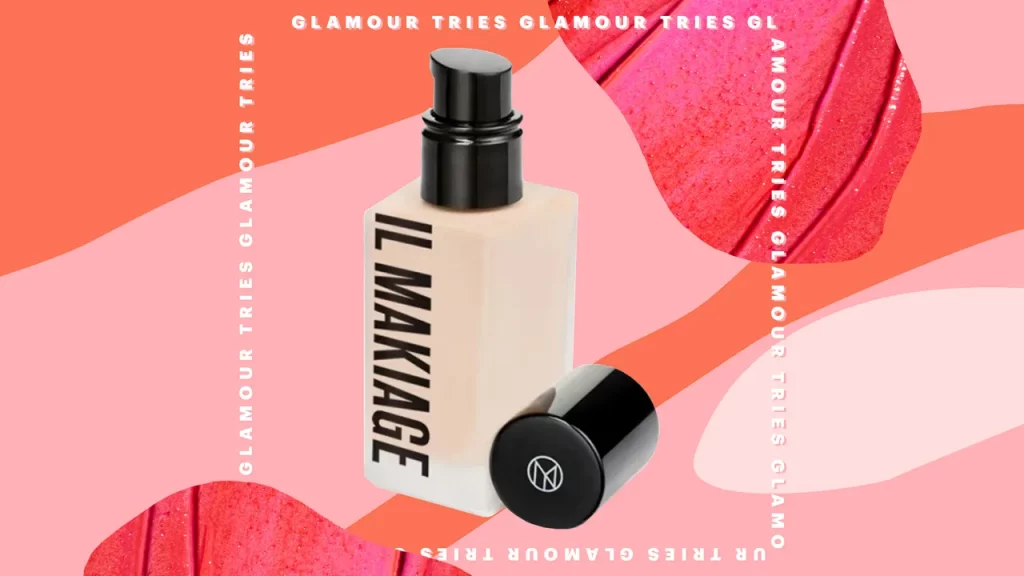Who here is excited about the release of a new beauty product? In that case, you should know that IL MAKIAGE, the newest cosmetic, has finally landed in the UK and is about to revolutionize the beauty industry.
Oran and Shiran Holtzman-Erel, who are brothers, started the business in 2018 and made it the fastest-growing beauty e-commerce platform in the US right away.


What is Il Makiage?
Maybe you’ve read some IL MAKIAGE testimonials on your favorite social media site. The most talked-about product from the cosmetics line, the ‘Woke Up Like This’ foundation, debuted in the UK in May and quickly became a sensation.
It can be difficult to find makeup that matches your skin tone online, but IL MAKIAGE does a perfect job of it even without seeing your face. The foundation is so well-liked that it has more than 90,000 reviews, making it the most-reviewed cosmetics item in the United States.
Direct-to-consumer beauty and wellness platform Oddity, best known for its Il Makiage social media ads, is profitable and expanding in an environment where online-only stores face increasing competition.
Despite growing market and economic uncertainty, the Tel Aviv-based company appears to be preparing for an IPO, according to CNBC’s sources.
As for whether or not it plans to go public, Oddity, which houses the Il Makiage makeup line, the Spoiled Child skin and hair care brand, and a third brand in the works, declined to comment to CNBC but did reveal some financial metrics.
The company claims that Oddity is now profitable following its 2018 U.S. launch and will generate $380 million in gross sales in 2022. Since 2018, the firm has seen annualized growth in gross sales of 100%.
In its first year on the market, Spoiled Child generated $48 million in sales. The company’s return rate was not disclosed, and oddities were not included in the company’s reported gross sales.
Oddity claims to be profitable from the very first purchase a customer makes, not just from subsequent purchases; it has over 40 million users despite the high cost of customer acquisition for most DTC retailers.
It is as much a technology company as it is a health and beauty business, and it aims to replace the traditional shopping experience with one that is powered by data and artificial intelligence.
You may be wondering, “How is it possible that this beauty customer is spending all of her time online, on Instagram and YouTube, getting education and inspiration, but ultimately transacting in stores?” CEO of Oddity International Lindsay Drucker Mann commented on the company’s financial performance. She doesn’t really want to go to the store; she just needs some assistance. She needs guidance in making a decision and some suggestions.
So, this is where Oddity comes in.
Why does Oddity do that?
Oran and Shiran Holtzman-Erel, a brother and sister team, founded Oddity in 2018. Their proprietary technology, which includes technology developed by a former Israeli defense official, and the billions of data points it has collected from its millions of users, form the core of the company’s business model.
Retailer emphasizes that it is a pure direct-to-consumer (DTC) business that was born in the digital age. 40% of its employees are technologists, and no one on staff has a background in the beauty and wellness industry.
Oddity uses data and AI to make personalized product recommendations for clients, as opposed to creating products that customers would need to try in a store. It also plans to use these methods to create a wide range of new brands.
Il Makiage, Oddity’s first brand, uses a “power match quiz,” which is an AI-powered product recommendation algorithm, to find the “perfect” foundation match for any skin type. Using a customer’s answers to a series of questions about their skin type and tone, the quiz then analyses a photo of the customer’s face to determine the appropriate color.
The company is sure that the algorithm works, saying that it gets the color right more than 90% of the time.
Drucker Mann predicted that if the plan failed, there would be a flood of returns and no repeat business, turning the economic model on its head.
Oddity uses its technology to learn about consumer wants and needs in order to create novel products and brands. From there, it is distributed to the suppliers who support the legacy beauty industry.
“We go to our suppliers with like, super specific product briefs on ‘we want you to create x’s… based on all the data that we’ve looked at,” Drucker Mann said. We are learning more about what buyers want so we can make a more personalized product.
The firm has stated that it does not share information with its vendors.
Voyage81, a deep tech AI-based computational imaging startup founded in 2019 by Dr. Boaz Arad, Dr. Rafi Gidron, and Omer Shwartz, along with Niv Price, the former head of R&D for one of the Israeli Defense Forces’ elite technological units, was acquired by the company in 2021.
The technology can map and analyze skin and hair features, find facial blood flow, and make maps of melanin and hemoglobin with just a regular smartphone camera.
Currently, Oddity is working to incorporate the technology into its Il Makiage powermatch quiz for the purpose of increasing precision. They say it “could replace a dermatologist’s eyes” in the future.
Reading the tea leaves
Oddity has taken several steps over the past year and a half that suggest it may be preparing for an initial public offering.
It hired Drucker Mann, a Goldman Sachs executive, as its global CFO in 2021. She worked for the financial behemoth for over 16 years, most recently as the head of the U.S. consumer and consumer technology equity capital markets.
She was successful in getting many companies listed on stock exchanges and assisted others in doing the same. She also oversaw IPOs, follow-on offerings, and private placements for consumer and technology companies in need of public and private equity financing.
By the following January of 2022, Oddity had raised $130 million from investors like Franklin Templeton and Fidelity Management, at a valuation of $1.5 billion. L Catterton, a major player in the private equity industry, was the only outside investor Oddity had previously attracted in order to finance its expansion into the American market.
Later that year, it announced it would sell so-called security tokens that could be exchanged for shares of stock at an initial public offering (IPO) at a discount of 20% from the IPO’s opening price.
“The CFO hire that was, I think, definitely a positive sign for an IPO, it’s something we look for in IPO candidates,” said Matthew Kennedy, senior IPO market strategist at Renaissance Capital. To paraphrase, “If growth was good in 2022, then I’d say they’re firing on all cylinders and seems like they could be well poised to go public.”
He added that the token sale Oddity held was more proof the company would soon be trading on public exchanges.
They have been “planning for an initial public offering,” he said. Token conversion at the time of an initial public offering is not announced in a press release by companies that are not planning to go public.
The IPO market had one of its slowest years in over a decade last year as interest rates surged, but the freeze is beginning to thaw and more and more companies are seeing mid- to late-2023 as a “viable listing timeline,” as noted by Kennedy.
Kennedy keeps tabs on each client’s initial filing as part of his work at Renaissance Capital. In general, he is on the lookout for businesses with over $100 million in annual sales and the potential to turn a profit within a few years of going public.
We hadn’t been keeping an eye out for that kind of oddity, he said. But I think we should monitor it for the time being.
It’s true that fads come and go, as we’ve witnessed.
Similarities can be drawn between Oddity and Olaplex, a once-hot hair care line that saw its stock price plummet after its initial public offering (IPO) and eventual collapse due to the company’s inability to stem its precipitous decline in sales.
If Oddity goes public, it must convince skeptical shareholders that its meteoric rise is not just a passing fad.
Since “consumer preferences can change rapidly and we do see fads come and go,” Kennedy cited this as the biggest threat.
Longtime retail analyst and current vice president of strategy at retail technology company Aptos, Nikki Baird, said direct-to-consumer (DTC) brands need to hit the right product mix to stay relevant, sustain growth, and attract investors.
The difficulty that a lot of companies have with direct-to-consumer sales is that “you have this founder that has this one great idea for this product or they found some nut on some unique tree in Brazil that they are bringing to market through their skin care product,” as Baird put it. “Yes, that’s wonderful for your lotion; however, can you build an entire beauty brand around this one thing that serves as the cornerstone of your first product?”
Oddity claims it is up to the task and is even dreaming bigger dreams.
I think the platforms of the future are going to be the ones that emerge from this moment, right? Drucker Mann recently expressed confidence that the winners would be solidified. I also think we are making the next generation of Oddity, which is one of the most important consumer companies of our time.




